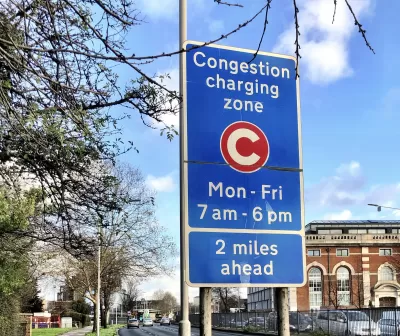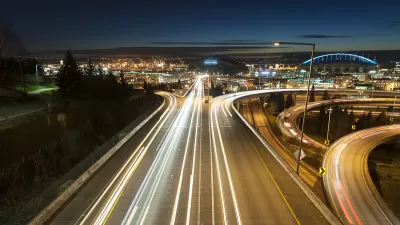Writing from London in an Op-Ed for Seattle’s Crosscut, Chuck Wolfe argues for a contextual approach to a much-touted search for transportation equity.

In cities like Seattle, advocates of congestion pricing—tolling those who drive into a designated downtown city zone—often point to London and Stockholm, two cities with robust transportation infrastructure, where the concept was initially unpopular, but now is an accepted fact of life.
In the face of Seattle’s ongoing consideration of congestion pricing tools, Wolfe wonders how this reasoning applies to Seattle and the Puget Sound region in 2019. He suggests greater similarity between Seattle and other cities where congestion pricing is currently on hold.
Now living and working in London and Stockholm, Wolfe counsels against summary comparisons. He contends that implementation of congestion pricing needs to make sense for Seattle, its particular geography, demography, transit service and public access issues, as well as work equitably for city and regional residents: "In Seattle, the deeper issue is how to align policy with local realities, without prematurely borrowing practices from elsewhere along the way."
FULL STORY: What London and Stockholm can teach Seattle about congestion pricing

Trump Administration Could Effectively End Housing Voucher Program
Federal officials are eyeing major cuts to the Section 8 program that helps millions of low-income households pay rent.

Planetizen Federal Action Tracker
A weekly monitor of how Trump’s orders and actions are impacting planners and planning in America.

The 120 Year Old Tiny Home Villages That Sheltered San Francisco’s Earthquake Refugees
More than a century ago, San Francisco mobilized to house thousands of residents displaced by the 1906 earthquake. Could their strategy offer a model for the present?

HSR Reaches Key Settlement in Northern California City
The state’s high-speed rail authority reached an agreement with Millbrae, a key city on the train’s proposed route to San Francisco.

Washington State Legislature Passes Parking Reform Bill
A bill that would limit parking requirements for new developments is headed to the governor’s desk.

Missouri Law Would Ban Protections for Housing Voucher Users
A state law seeks to overturn source-of-income discrimination bans passed by several Missouri cities.
Urban Design for Planners 1: Software Tools
This six-course series explores essential urban design concepts using open source software and equips planners with the tools they need to participate fully in the urban design process.
Planning for Universal Design
Learn the tools for implementing Universal Design in planning regulations.
Ada County Highway District
Clanton & Associates, Inc.
Jessamine County Fiscal Court
Institute for Housing and Urban Development Studies (IHS)
City of Grandview
Harvard GSD Executive Education
Toledo-Lucas County Plan Commissions
Salt Lake City
NYU Wagner Graduate School of Public Service




























